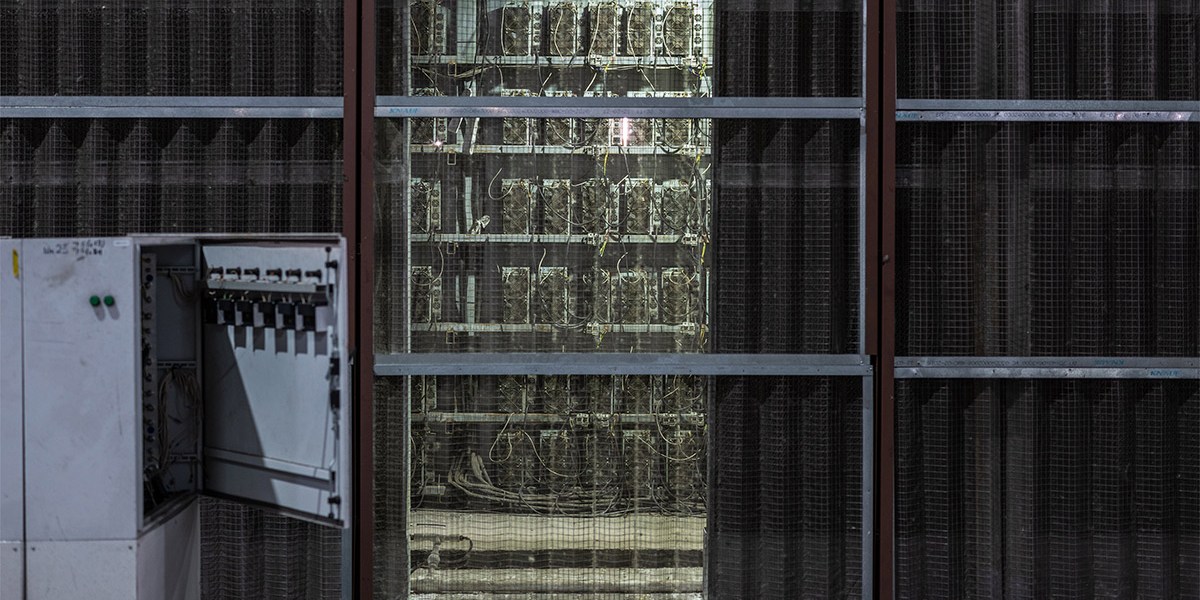
[ad_1]
De Vries, the researcher, says that even if miners move on to cleaner energy sources, the industry still won’t be sustainable. All it will do is crowd out other consumers of clean energy in order to perform a function that, in his analysis , is entirely pointless.
In September, Ethereum, the second-most-traded cryptocurrency, abandoned the “proof of work” model for generating coins—ie, mining—for “proof of stake,” a complicated cryptographic process that doesn’t require brute-force calculation. The Ethereum network’s energy usage dropped by 99.95% after the switch, according to the Ethereum Foundation, which oversees the network. This highlighted just how wasteful bitcoin mining is, de Vries says. Rather than looking at what the industry produces, he says, it’s instructional to think of all the failed guesses that the machines make—quintillions of them every second, creating nothing but heat and carbon.
“You have a pretty big industry consuming as much power as a country like Argentina, just for generating random numbers that get thrown out right away … That’s something that you can’t really do sustainably,” he says. “We’re in an energy crisis and a climate crisis, and we’re using fossil fuels to run the world’s biggest random-number generator.”
The measure of the bitcoin mining business might be in what it’s left behind. Truegeldy Turanov has helped build three mines in Ekibastuz as the deputy regional director for BTC.kz, a local data-center company. Now, he’s dismantling them.
At its peak, just one of those facilities on the outskirts of the city ran 10,500 machines, drawing 35 megawatts of power 24 hours a day, seven days a week. In late October, most of its racks were empty. Bare wires hung loose from the walls. On the upper gantries, some of the machines were rusting in place; on the ground floor, others were being packed into cardboard boxes to be shipped back to their owners overseas.
Without the machines running, it was bitter cold inside the BTC.kz mine. Turanov, a broad man in his 20s, wearing a stocking hat and body warmer, sighed deeply. “Jobs are being lost,” he said. “We used to employ 70 people. Now we’re just 30. A lot of effort and work was put into this. It feels as if your child is dying.”
There are still elements of Bitcoin boosterism in evidence in Kazakhstan. One miner said he was gambling on the ruble’s collapsing because of international sanctions on Russia, meaning that the price of imported electricity would fall; $100,000 in 2023, and is holding on until it does. Others, including Enegix’s Turgumbayev, are confident that the market is about to turn because, since its assault on bitcoin mining, the Kazakhstani government has found a new enthusiasm for cryptocurrencies.
In September, President Tokayev fronted a tech conference in Astana, in which he promised “full legal recognition” of crypto assets. This would mean that miners would finally be able to legally convert bitcoin and other cryptocurrency directly to tenge and that vice versa, and crypto could ultimately be used to pay for goods and services in Kazakhstan. The Astana International Financial Center is running a “regulatory sandbox” for crypto companies, allowing exchanges to register, so that they can let consumers buy and sell crypto legally. Binance, the The world’s largest crypto exchange, has set up a local office and is participating in the sandbox.
[ad_2]
Source link




